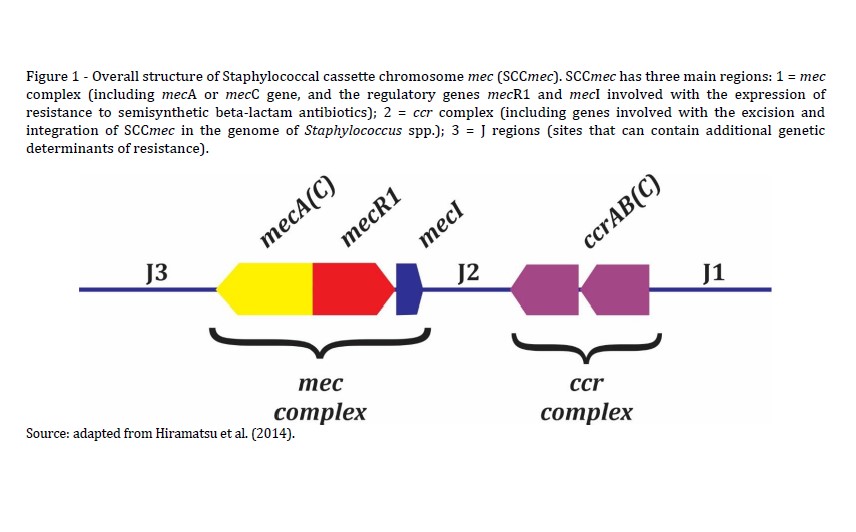Antimicrobial resistance of Staphylococcus spp. in swine farming: a challenge for one health
DOI:
https://doi.org/10.21708/avb.2019.13.4.8547Abstract
The inadequate and excessive use of antimicrobial agents in pig farming has contributed to the emergence and increase of resistance to antibiotics in both bacteria related to infectious processes in these animals as those that constitute their own microbiota. This conduct also causes the dissemination of these microorganisms throughout the pig production chain, causing damages to health of consumers of their meat and processed-meat products. The effect of excess use of these medicines can even reach and compromise other ecosystems. Methicillin-resistant Staphylococcus (MRS) stands out among bacterium species of interest to the public health. They emerged as important zoonotic pathogens, whose evolution generated different virulence and mechanisms of resistance to antimicrobial agents and has been associated to high use of these medicines in pig farming. The development of resistance to antibiotics in Staphylococcus spp., especially the expression of the gene mecA, and their interrelation with pig farming are aspects considered in this work. The emergence and global presence of MRS in pig farming denote the important epidemiological involvement of these animal species in the dissemination of these microorganisms, and the occurrence of infections in humans and animals in the whole world. This is a scenario that requires attention by public health agencies and should not be overlooked.
Downloads

Downloads
Published
Issue
Section
License
Autores que publicam na Acta Veterinaria Brasilica concordam com os seguintes termos: a) Autores mantém os direitos autorais e concedem à revista o direito de primeira publicação, com o trabalho simultaneamente licenciado sob a Licença Creative Commons Attribution que permite o compartilhamento do trabalho com reconhecimento da autoria e publicação inicial nesta revista. b) Autores têm autorização para assumir contratos adicionais separadamente, para distribuição não-exclusiva da versão do trabalho publicada nesta revista (ex.: publicar em repositório institucional ou como capítulo de livro), com reconhecimento de autoria e publicação inicial nesta revista. c) Autores têm permissão e são estimulados a publicar e distribuir seu trabalho online (ex.: em repositórios institucionais ou na sua página pessoal) a qualquer ponto antes ou durante o processo editorial, já que isso pode gerar alterações produtivas, bem como aumentar o impacto e a citação do trabalho publicado (Veja O Efeito do Acesso Livre).


 Esta obra está licenciada com uma Licença
Esta obra está licenciada com uma Licença 